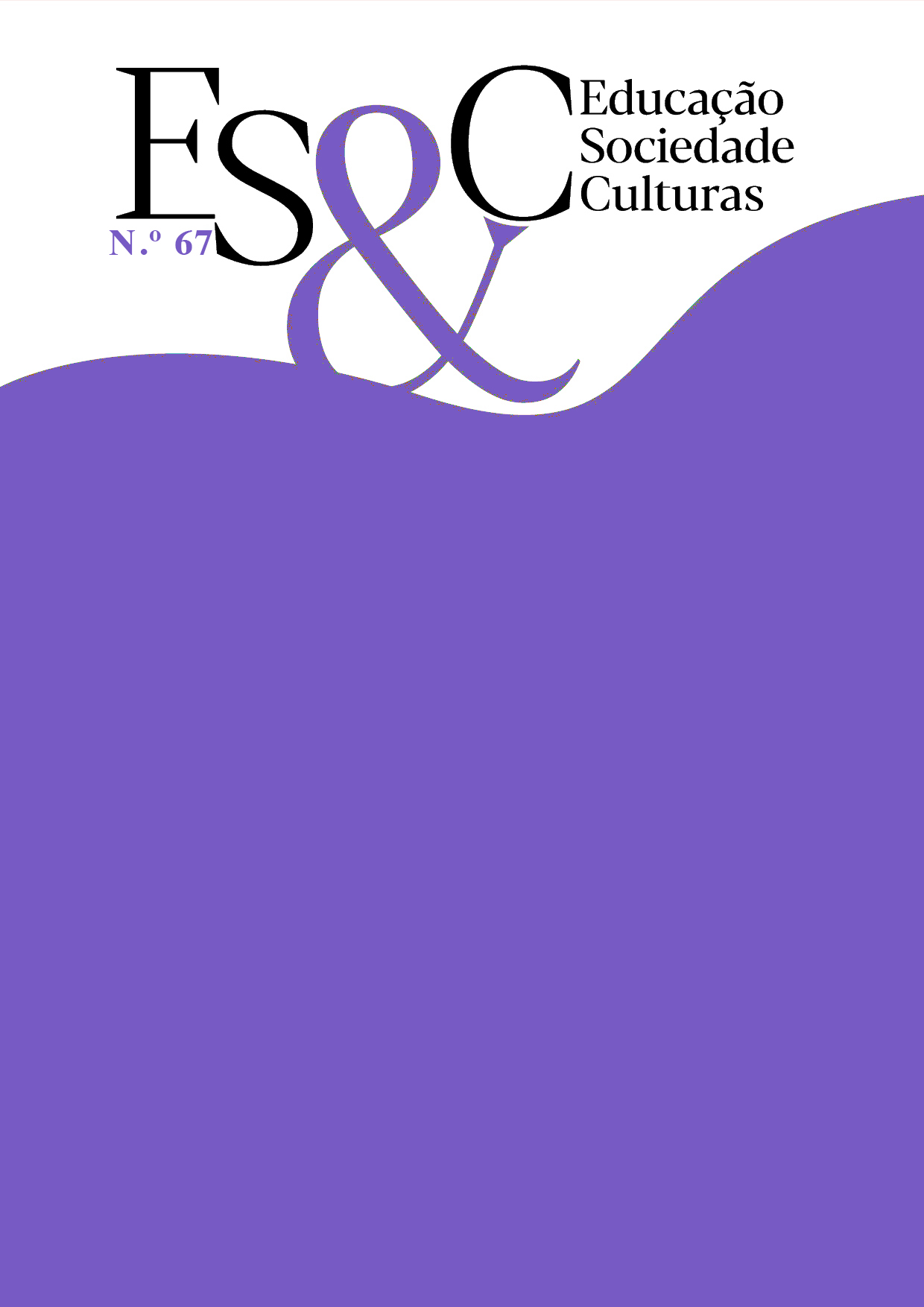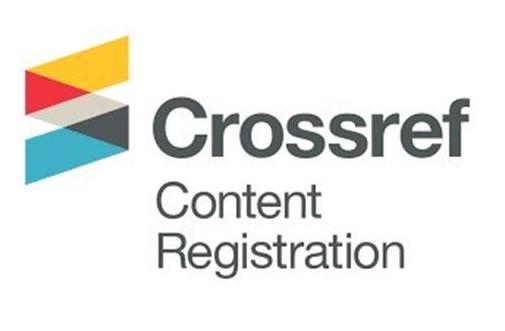Formar professores para os desafios profissionais futuros
O potencial das comunidades de prática e do prático investigador
DOI:
https://doi.org/10.24840/esc.vi67.776Palavras-chave:
comunidade de aprendizagem, desenvolvimento profissional, investigação da práticaResumo
Esta reflexão parte dos desafios que se colocam à formação de professores para explorar o potencial formativo das comunidades de prática e do prático-investigador na arquitetura da formação de professores. O mote são estudos de revisão de literatura, identificados nas bases de dados B-on e Scopus na última década, sobre as comunidades de prática e o prático-investigador na formação de professores, coadjuvados com evidências resultantes de projetos de investigação desenvolvidos no âmbito do 2.º Ciclo em Ensino da Educação Física para os Ensinos Básico e Secundário da Faculdade de Desporto da Universidade do Porto. Foram identificadas vantagens em configurar a formação de professores e o desenvolvimento profissional num continuum, em espaços partilhados, como comunidades de prática/aprendizagem, em que os/as professores/as das escolas e da faculdade cooperam na formação de futuros professores e, simultaneamente, se desenvolvem profissionalmente. As comunidades necessitam de ser descentralizadas e democráticas para serem sustentáveis. A formação de professores baseada na investigação pode servir como força motriz para vincular os/as futuros/as professores/as a práticas informadas pela pesquisa. Já a sua permanência, como práticos-investigadores, reclama por uma cultura de escola que apoie e valorize a investigação educacional.
Downloads
Referências
Ainscow, Mel (2005). Developing inclusive education systems: What are the levers for change? Journal of Educational Change, 6, 109–124. http://dx.doi.org/10.1007/s10833-005-1298-4
Altrichter, Herbert (2005). The role of the ‘professional community’ in action research. Educational Action Research, 13(1), 11–26. https://doi.org/10.1080/09650790500200274
Alves, Margarida, Queirós, Paula, & Batista, Paula (2017). O valor formativo das comunidades de prática na construção da identidade profissional. Revista Portuguesa de Educação, 30(2), 159–185. https://doi.org/10.21814/rpe.12275
Armour, Katheleen, Quennerstedt, Mikael, Chambers, Fiona, Makopoulou, Kyriaki (2017). What is ‘effective’ CPD for contemporary physical education teachers? A Deweyan framework. Sport, Education and Society, 22(7), 799–811. https://doi.org/10.1080/13573322.2015.1083000
Bacak, Julie, & Byker, Eric (2021). Moving from levels of inquiry to the flexible phases of inquiry theory: A literature review of inquiry-based teacher education. Journal of Teacher Education and Educators, 10(2), 255–271. https://dergipark.org.tr/en/pub/jtee/issue/64710/877719
Banchi, Heather, & Bell, Randy (2008). The many levels of inquiry. Science and Children, 46(2), 26–29. https://eric.ed.gov/?id=EJ815766
Batista, Paula (2014). O papel do estágio profissional da (re)construção da identidade profissional no contexto da Educação Física: Cartografia de um projeto de investigação. In Paula Batista, Amândio Graça, & Paula Queirós (Eds.), O estágio na (re)construção da identidade profissional em Educação Física (pp. 9–41). FADEUP.
Batista, Paula (2020). O potencial formativo e os desafios às práticas de supervisão em comunidades de prática: Reflexão sustentada numa experiência pedagógica em contexto de estágio de educação física. In Ana Ribeiro, Ana Luís, Carlos Barreira, & Elsa Ribeiro-Silva (Eds.), A supervisão pedagógica no século XXI: Desafios da profissionalidade docente (pp. 45–63). Imprensa da Universidade de Coimbra. https://doi.org/10.14195/978-989-26-1825-8_2
Batista, Paula (2022). Dinâmicas colaborativas entre a universidade e a escola no contexto da formação de professores: Uma experiência no desenvolvimento do currículo em Educação Física. In CNaPPES 2022: 8º Congresso Nacional de Práticas Pedagógicas no Ensino Superior (pp. 366–369). Escola Superior de Enfermagem de Coimbra.
Batista, Paula, & Amândio, Graça (2021). Construir a profissão no contexto da formação de professores de educação física: Processos, desafios e dinâmicas entre a escola e a universidade. Proposições, 32(1), 1–27. http://dx.doi.org/10.1590/1980-6248-2018-0084
Borko, Hilda, Liston, Dan, & Whitcomb, Jennifer (2007). Apples and fishes: The debate over dispositions in teacher education. Journal of Teacher Education, 58(5), 359–364. https://doi.org/10.1177/0022487107309977
Brooks, Clare (2018). Insights on the field of geography education from a review of master’s level practitioner research. International Research in Geographical and Environmental Education. 27(1), 5–23. https://doi.org/10.1080/10382046.2017.1285134
Cardoso, Inês, Batista, Paula, & Graça, Amândio (2014). Aprender a ser professor em comunidade de prática: Um estudo com estudantes estagiários de Educação Física. In Paula Batista, Amândio Graça, & Paula Queirós (Eds.), O estágio profissional na (re)construção da identidade profissional em Educação Física (pp. 181–207). FADEUP.
Cochran-Smith, Marilyn, & Lytle, Susan (1993). Inside/outside: Teacher research and knowledge. Teachers College Press.
Cochran-Smith, Marilyn, & Lytle, Susan (2009). Teacher research as stance. In Susan E. Noffke & Bridget Somekh (Eds.), The SAGE Handbook of Educational Action Research (pp. 39–49). SAGE.
Comissão Europeia. (2013, 18 junho). Grupo de Alto Nível da UE: Formar os professores para o ensino. Comissão Europeia. https://ec.europa.eu/commission/presscorner/detail/pt/IP_13_554
Cordingley, Phillippa (2004). Teachers using evidence: Using what we know about teaching and learning to reconceptualise evidence-based practice. In Gary Thomas & Richard Pring (Eds.), Evidence-based practice in education (pp. 77–90). Open University Press.
Dana, Nancy, & Yendol-Hoppey, Diane (2020). The reflective educator’s guide to classroom research: Learning to teach and teaching to learn through practitioner inquiry (4th ed.). SAGE.
Feiman-Nemser, Sharon (2001). Helping novices learn to teach: Lessons from an exemplary support teacher. Journal of Teacher Education, 52(1), 17–30. https://doi.org/10.1177/0022487101052001003
Ferreira, Janaína, Souza-Neto, Samuel, & Batista, Paula (2022). Desenvolvimento do conhecimento profissional docente no seio de práticas colaborativas: Um estudo no contexto de um programa de formação de professores. Movimento, 28, e28068. https://doi.org/10.22456/1982-8918.127534
Fielding, Michael (2001). Taking education seriously: Four years hard labour. Routledge.
Fletcher, Tim, Chróinín, Déirdre, O’Sullivan, Mary, & Beni, Stephanie (2020). Pre-service teachers articulating their learning about meaningful physical education. European Physical Education Review, 26(4), 885–902. https://doi.org/10.1177/1356336X1989969
Flores, Maria, Vieira, Flávia, & Ferreira, Fernando (2014). Formação inicial de professores em Portugal: Problemas, desafios e o lugar da prática nos mestrados em ensino pós Bolonha. In Célia Borges & Orlando Aquino (Orgs.), A formação inicial de professores: Olhares e perspectivas nacionais e internacionais (pp. 61–96). EDUFU.
Flores, Maria, Vieira, Flávia, Silva, José, & Almeida, Judite (2016). Integrating research into the practicum: Inquiring into inquiry-based professional development in post-Bologna initial teacher education in Portugal. In Maria Flores & T. Al-Barwani (Eds.), Redefining teacher education for the post-2015 era: Global challenges and best practice (pp. 109–124). Nova Science Publisher.
Gomes, Patrícia, Alves, Margarida, Queirós, Paula, & Batista, Paula (2014). Learning through practice: A study with Physical Education pre-service teachers. The Open Sports Sciences Journal, 7(Suppl-2, M6), 121–132. http://dx.doi.org/10.2174/1875399X01407010121
Harper, Douglas (2002). Talking about pictures: A case for photo elicitation. Visual Studies, 17(1), 13–16. https://doi.org/10.1080/14725860220137345
Healy, Mick, & Jenkins, Alan (2009). Developing undergraduate research and inquiry. The Higher Education Academy.
Herrenkohl, Leslei, Kawasak, Kawasaki, & Dewater, Lezlie (2011). Inside and outside: Teacher-researcher collaboration. The New Educator, 6(1), 74–92. https://doi.org/10.1080/1547688X.2010.10399589
Jones, Sarah-Louise, Hall, Tony, Procter, Richard, Connolly, Cornelia, & Fazlagic, Jan (2022). Conceptualising translational research in schools: A systematic literature review. International Journal of Educational Research, 114, 101998. https://doi.org/10.1016/j.ijer.2022.101998
Kansanen, Pertti (2014). Teaching as a master’s level profession in Finland: Theoretical reflections and practical solutions. In Olwen McNamara, Jean Murray, & Marion Jones (Eds.), Workplace learning in teacher education: International practice and policy (pp. 279- 292). Springer. https://doi.org/10.1007/978-94-007-7826-9_16
Kanter, Rosabeth (1972). Commitment and community: Communes and utopias in sociological perspective. Harvard University Press.
Lave, Jean, & Wenger, Etienne (1991). Situated learning: Legitimate peripheral participation. Cambridge University Press. https://doi.org/10.1017/CBO9780511815355
Lee, Dabae, Jung, Jiyoon, Shin, Suhkyung, Otternbreit-Leftwich, Anne, & Glazewski, Krista (2020). A sociological view on designing a sustainable online community for K–12 teachers: A systematic review. Sustainability, 12(22), 9742. https://doi.org/10.3390/su12229742
Li, Linda, Grimshaw, Jeremy, Nielsen, Camila, Judd, Maria, Coyte, Peter, & Graham, Ian (2009). Evolution of Wenger’s concept of community of practice. Implementation Science, 4(11), 1–8. https://doi.org/10.1186/1748-5908-4-11
Lu, Yi- Ling (2016). Experiences in the workplace community and the influence of community experiences on ENP courses for nursing professionals. Nurse Education Today, 40, 39–44. https://doi.org/10.1016/j.nedt.2016.01.025
MacPhail, Ann, & Lawson, Hal (2020). Grand challenges as catalysts for the collaborative redesign of physical education, teacher education, and research and development. In Ann MacPhail & Hall Lawson (Eds.), School, physical education and teacher education: Collaborative redesign for twenty-first century (pp. 1–10). Routledge.
Makopoulou, Kyriaki, & Armour, Kathleen (2011). Physical education teachers’ career-long professional learning: Getting personal. Sport, Education and Society, 16(5), 571–591. https://doi.org/10.1080/13573322.2011.601138
Marcondes, Maria, & Flores, Maria (2014). O auto-estudo e as abordagens narrativobiográficas na formação de professores. Educação PUCRS, 37(2), 297–306. https://doi.org/10.15448/1981-2582.2014.2.13331
Nguyen, Tuan, & Springer, Matthew (2023). A conceptual framework of teacher turnover: A systematic review of the empirical international literature and insights from the employee turnover literature. Educational Review, 75(5), 993–1028. https://doi.org/10.1080/00131911.2021.1940103
Nóvoa, António (2017). Firmar a posição como professor, afirmar a profissão docente. Cadernos de Pesquisa, 47(166), 1106–1133. https://doi.org/10.1590/198053144843
Nóvoa, António (2019). Os professores e a sua formação num tempo de metamorfose da escola. Educação & Realidade, 44(3). https://doi.org/10.1590/2175-623684910
O’Donoghue, Tom, Harford, Judith, & O’Doherty, Teresa (2017). Teacher preparation in Ireland: History, policy and future directions. Emerald.
Parker, Melissa, Patton, Kevin, Gonçalves, Luiza, Luguetti, Carla, & Lee, Okseon (2022). Learning communities and physical education professional development: A scoping review. European Physical Education Review, 28(2), 500–518. https://doi.org/10.1177/1356336X211055584
Petrie, Kirsten (2017). Curriculum reform where it counts. In Catherine Ennis, Kathleen Armour, Ang Chen, Alex C. Garn, Eliane Mauerberg-deCastro, Dawn Penney, Stephen J. Silverman, Melinda A. Solmon, & Richard Tinning (Eds.), Routledge handbook of physical education pedagogies (pp. 705-718). Routledge.
Petticrew, Mark, & Roberts, Helen (2006). Systematic reviews in the social sciences: A practical guide. Blackwell Publishing. https://onlinelibrary.wiley.com/doi/book/10.1002/9780470754887
Phoenix, Cassandra (2010). Seeing the world of physical culture: the potential of visual methods for qualitative research in sport and exercise. Qualitative Research in Sport, Exercise and Health, 2(2), 93–108. https://doi.org/10.1080/19398441.2010.488017
Rutten, Logan (2021). Toward a theory of for practitioner inquiry as professional development in preservice teacher education. Teacher and Teacher Education, 97. https://doi.org/10.1016/j.tate.2020.103194
Sachs, Judyth (2003). The activist teaching profession. Open University Press.
Senge, Peter (1990) The fifth discipline: The art and practice of the learning organization. Currency/Doubleday.
Tannehill, Deborah, & MacPhail, Ann (2017) Teacher empowerment through engagement in a learning community in Ireland: Working across disadvantaged schools. Professional Development in Education, 43(3), 334–352. https://doi.org/10.1080/19415257.2016.1183508
Watson, Cate (2014) Effective professional learning communities? The possibilities for teachers as agents of change in schools. British Educational Research Journal, 40(1), 18–29. https://doi.org/10.1002/berj.3025
Wenger, Etienne (1998). Communities of practice: Learning, meaning and identity. Cambridge University Press. https://doi.org/10.1017/CBO9780511803932
Wenger, Etienne, McDermott, Richard, & Snyder, William (2002). Cultivating communities of practice. Harvard Business School Press.
Zeichner, Kenneth (2010). Rethinking the connections between campus courses and field experiences in college and university-based teacher education. Journal of Teacher Education, 89(11), 89–99. https://doi.org/10.1177/0022487109347671
Downloads
Publicado
Como Citar
Edição
Secção
Licença
Direitos de Autor (c) 2024 Paula Batista

Este trabalho encontra-se publicado com a Licença Internacional Creative Commons Atribuição-NãoComercial-CompartilhaIgual 4.0.
Os/as autores/as mantêm os direitos autorais, sem restrições, e concedem à revista ESC o direito de primeira publicação, com o trabalho simultaneamente licenciado sob a Creative Commons Atribuição-NãoComercial-CompartilhaIgual 4.0 Internacional (CC BY-NC-SA). É permitido copiar, transformar e distribuir e adaptar o material em qualquer suporte ou formato, desde que com o devido reconhecimento da autoria e publicação inicial nesta revista, as alterações sejam identificadas e seja aplicada a mesma licença ao material derivado, não podendo ser usado para fins comerciais.









